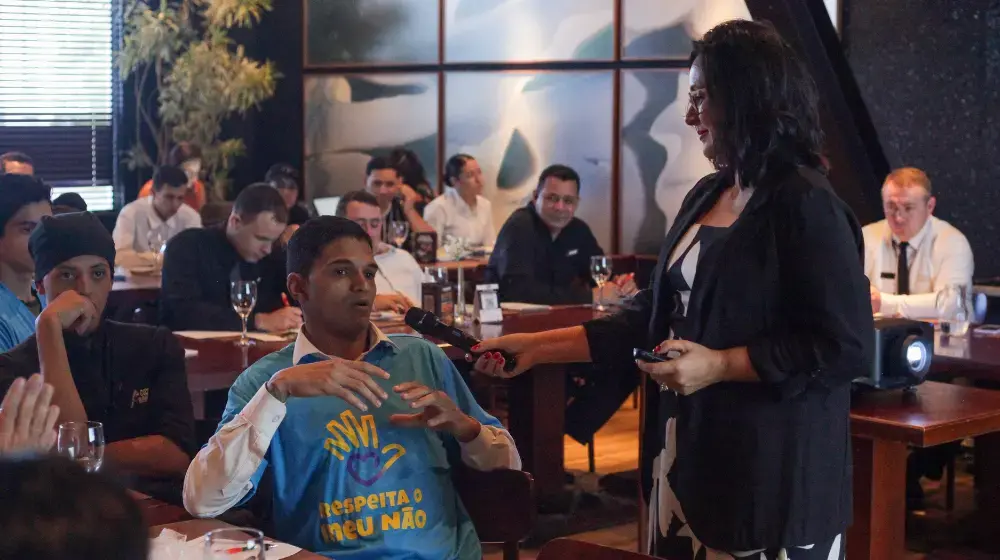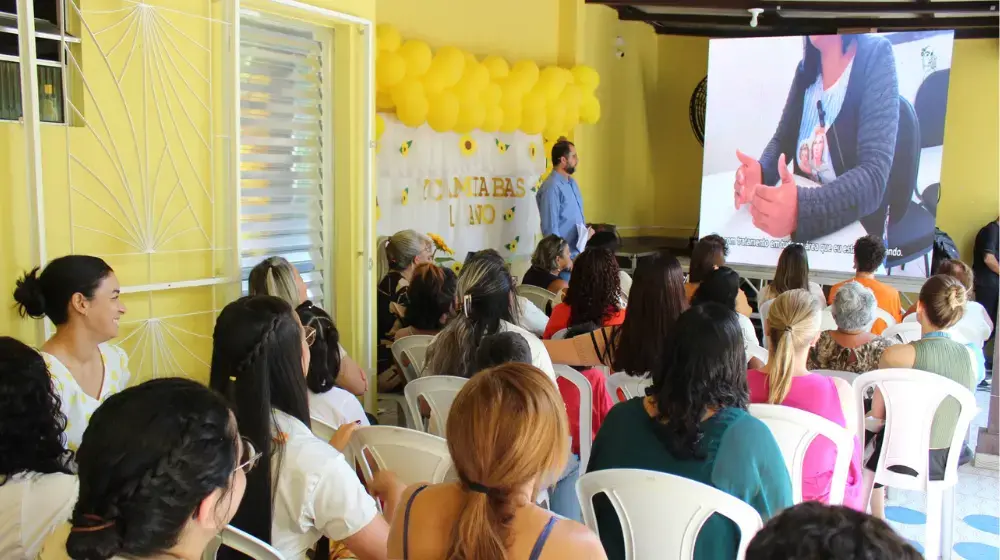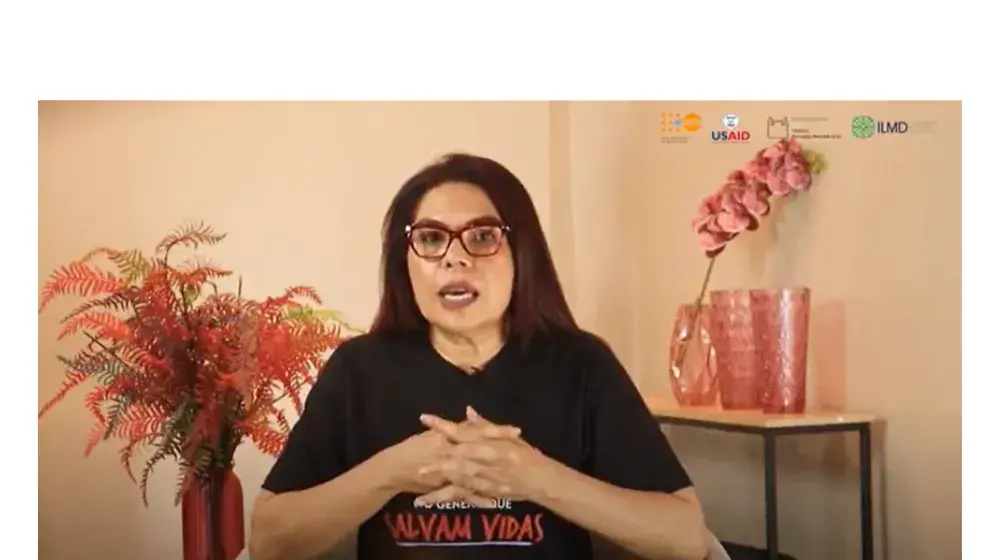"Men need to rethink their practices, their lives, to reflect on how this pattern (or role) of being a man is also harmful to their lives." says general coordinator from Instituto Papai, Sirley Vieira
Gender-based violence is no longer shocking, is not impressive, often viewed with alleged normality and thus remains a major challenge for Brazil. The intersections of machismo with racism and sexism show us, in numbers, how many lives are lost. And the debate about masculinities is fundamental to change the reality in the country, presented in the 13th Edition of the Brazilian Public Safety Yearbook, of the Brazilian Public Safety Forum. The survey shows that in 2018, 1,206 women were victims of femicide, 61% of the black women and 52.3% of firearm-related murders. In 88.8% of the cases, the perpetrator was the victim's former partner.
The State of World Population Report 2019 (SWOP), launched globally by the United Nations Population Fund (UNFPA) and entitled “Unfinished Business: the pursuit of Rights and Choices for All” shows that to achieve development, gender-based violence needs to be addressed. The researcher Osmundo Pinho agrees with the perspective of the report. Pinho is a reference in the debate on masculinities and professor at the Universidade Federal do Recôncavo da Bahia (UFRB), an institution where Elitânia de Souza Hora studied, the student was violently killed by gunfire, in spite of a restraining order, in a suspected case of femicide in Bahia (read public statement issued by UNFPA Brazil and UN Women).
The social and cultural construction
Pinho explains the concept of masculinities. “Strictly speaking, masculinity is a political performance of power, which invests in some bodies marked as 'masculine', prerogatives of power that reflect the way Western societies have built themselves through a bio-logic that makes the foundation of power, ” he explains.
The researcher also said that masculinity "is not natural neither univocal, but produced in historical contexts and ritually reproduced in daily life." It also means that there is no masculinity, but many possibilities unequally produced in unequal and politically tensioned contexts. For racism for example. But also by the heterosexual norm and the formation of social classes and the state, ” he adds.
According to researcher and member of Rede Afro LGBT, Nilton Luz, people are educated to occupy a previously established gender position. “The masculine is regarded as the strong, protective, provider. The feminine is the beautiful, fragile and caregiver. The notion of gender, taken to an extreme, makes women an object in the service of men, which often explains cases of men who assault women, or kill them when they leave her, as if she had no power to make such a decision.” he explains. Luz points out that many issues encourage violence against women and occur as a result of cultural, economic and political patterns.
The researcher also says that the construction of masculinities as they are currently forged can generate “innumerable emotional and psychic problems”, due to social pressures suffered by men and women. “In this way, the man is influenced to naturalize that the woman 'becomes fragile' before him. That is, a social game at least uncomfortable. And as it is an act, it does not hold, leading from the common experiences of men interrupting the speech of women, to physical and lethal violence, ” he concludes.
Responsible Fatherhood
According to actor Érico Brás, who is part of the Pai Presente Importa campaign (Father Present Matters) and a member of the Advisory Board of UNFPA Brazil, one way to discuss masculinities is to talk about responsible parenting and family planning. “We need to take into consideration the paternity we have in Brazil, especially for us black men,” he reflects on the connections between machismo and racism and the impacts on the black population. “We know that the process of making symbolic and physical death of the black man is underway. But now we are turning around with greater awareness. Most of us have not had exemplary parenting. But we want to have references and we need to build it, ” he emphasizes.
The actor, who is a father, believes that men and in particular black men need to observe four points to improve their participation and care for their families: political, religious, cultural and economic points of view. “These four pillars are important to be reevaluated and reframed so that we can understand our role in promoting rights within this patriarchal and male chauvinism society. It is our responsibility now to build the men of the future. ” Through the UNFPA campaign, the actor contributes to men's awareness by highlighting the importance of accompanying women throughout pregnancy, being present in childbirth and postpartum, housework, caring, supporting and caring for children throughout their lives.
According to Sirley Vieira, the general coordinator from Instituto Papai, “masculinity, in the singular, is an idea attributed and assumed by certain people of what it is to be a man. Those who assume this idea of being a man may be biologically male or not (trans men). There is no 'masculinity', what exists is 'masculinities’ ”, he reinforces and emphasizes that this kind of perception only normalizes the vision of what it is to be a man. “Most people cannot understand the diversity of ways of being a man, as something natural and normal, always requiring the framing of this model of being a man. This causes many problems and conflicts, ” emphasizes the member of the organization Instituto Papai.
Good practices for men
Vieira points out that men need to join in the struggle to end violence against women. “It is necessary for men to rethink their practices, their lives, to reflect on how this pattern (or role) of being a man is also harmful to their lives,” proposes the researcher. Sirley Vieira is former partner of UNFPA, with projects such as Homens também Cuidam (Men Also Take Care). The anthropologist also suggested a step-by-step best practice for men: “It is important for them to take action on changing small habits, such as learning to listen to women and being willing to share care, whether of domestic tasks, child care, their things and recognizes their weaknesses, not thinking themselves superior. it is necessary to learn to dialogue”.





